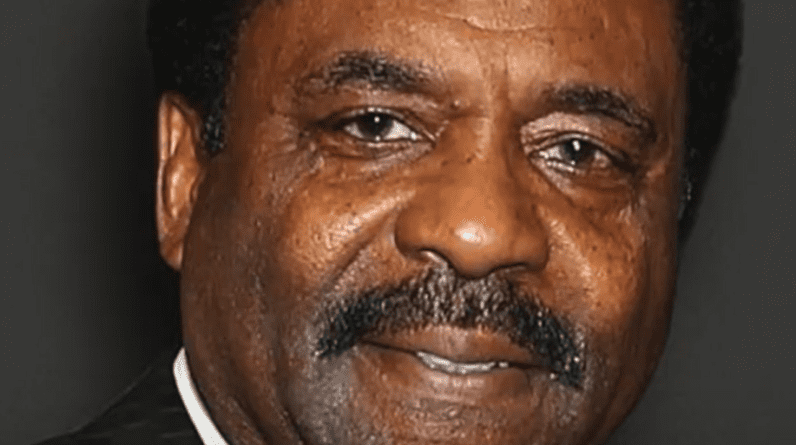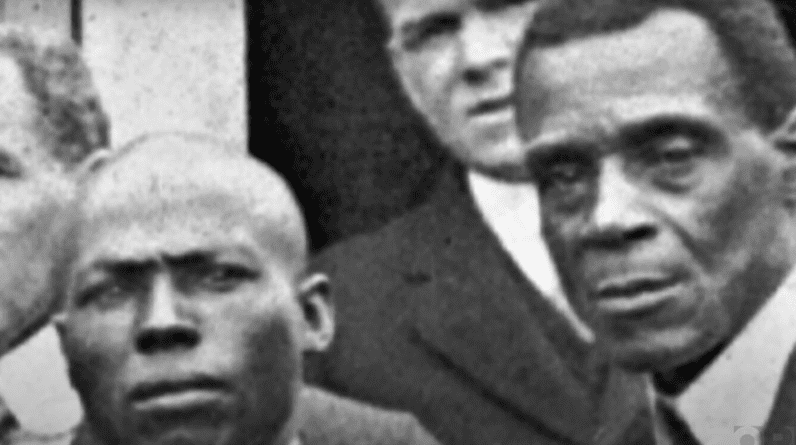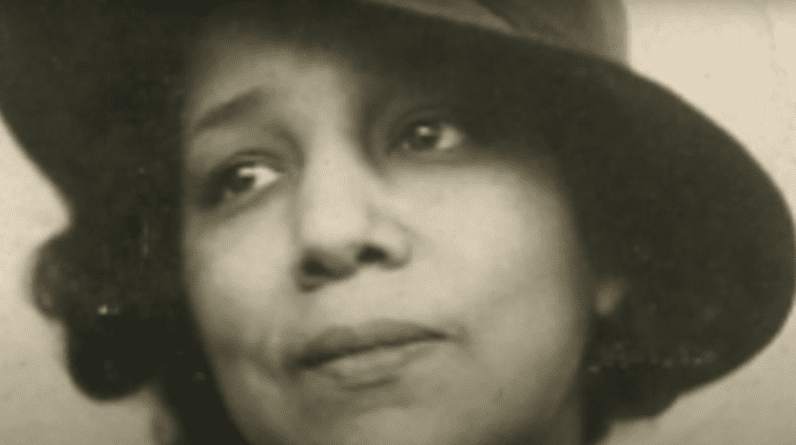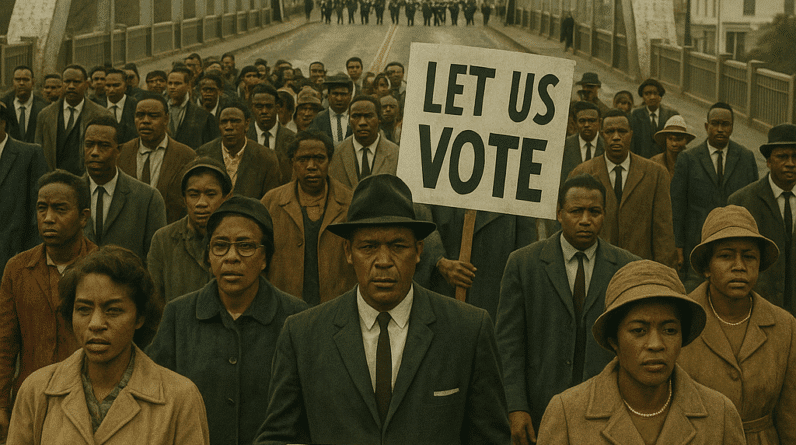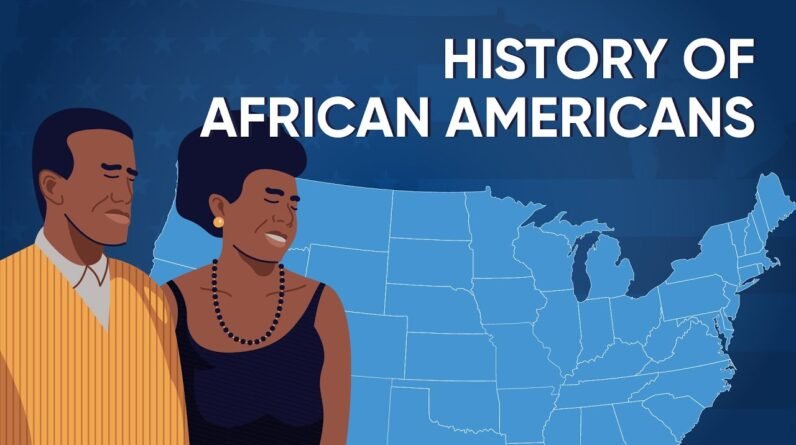
History of the African American Race
History of the African American Race. Are you ready to embark on a fascinating journey through time as we delve into the rich history of the African American race? From the struggles and accomplishments of prominent figures to the perseverance and resilience of an entire community, this article will guide you through key events and milestones that have shaped the African American experience. Get ready to immerse yourself in a captivating exploration of the past and gain a deeper understanding of the remarkable journey that has led us to where we are today.

Origins of the African American Race
African Origins
The origins of the African American race can be traced back to the African continent. Africa is a diverse continent with a rich history. It is believed that humans first originated in Africa and from there, populations migrated to different parts of the world. Sub-Saharan Africa is the region where many of the ancestors of African Americans come from.
Transatlantic Slave Trade
One of the darkest chapters in human history is the Transatlantic Slave Trade, which lasted from the 16th to the 19th centuries. Millions of Africans were forcibly taken from their homes and transported across the Atlantic Ocean to the Americas, primarily to work on plantations as slaves. This brutal system not only resulted in the separation of families and the loss of cultural heritage, but also had a profound impact on shaping the African American identity.
Middle Passage
The Middle Passage refers to the horrific journey that enslaved Africans endured during the Transatlantic Slave Trade. They were packed into crowded and unsanitary ships, often with limited access to food, fresh air, and proper sanitation. Many Africans died due to disease, malnutrition, or brutality during this voyage. The Middle Passage represents a tragic and dehumanizing chapter in the history of African Americans.
African American Slavery in America
Arrival in America
Africans arrived in America as slaves, brought against their will to labor on plantations. The year 1619 marks the arrival of the first enslaved Africans in the English colony of Virginia. Over the next centuries, slavery spread to other parts of North America, with Africans being bought, sold, and treated as property. The enslaved population grew significantly, contributing to the economic prosperity of the American colonies.
Plantation Life
Life on plantations was characterized by harsh conditions and labor-intensive work. Enslaved Africans worked long hours in cotton, tobacco, and sugar plantations, enduring physical abuse and facing the constant threat of punishment. Families were often separated as individuals were sold to different plantations, causing immense emotional pain. Despite these challenges, African Americans found ways to maintain their cultural practices and forge a sense of community within the constraints of slavery.
Resistance and Revolts
Throughout the period of slavery, African Americans demonstrated resistance in various forms. From acts of individual defiance to organized revolts, they fought against their oppressors and sought freedom. Notable rebellions such as the Gabriel Prosser revolt in 1800 and the Nat Turner rebellion in 1831 demonstrate the lengths to which enslaved individuals went to challenge the institution of slavery. These acts of resistance laid the groundwork for the eventual abolition of slavery.

Abolition Movement and Underground Railroad
Origins of the Abolition Movement
The abolition movement emerged in the late 18th century and gained momentum in the 19th century. It aimed to end the institution of slavery and grant freedom to enslaved individuals. Abolitionists, both black and white, worked tirelessly to raise awareness, advocate for emancipation, and challenge the legality of slavery. Their efforts played a crucial role in shifting public opinion and sparking a national conversation about the morality and legality of slavery.
Manifestations of Resistance
Resistance against slavery took various forms during the antebellum period. Underground Railroad, a network of secret routes and safe houses, was established to assist enslaved individuals in escaping to free states or Canada. Harriet Tubman, a prominent figure in the abolition movement, became known as the “Moses of her people” for her role in the Underground Railroad, leading hundreds of enslaved individuals to freedom. The Underground Railroad exemplifies the determination and bravery of African Americans and their allies in the fight for freedom.
Important Figures: Harriet Tubman, Frederick Douglass
Harriet Tubman and Frederick Douglass are two of the most influential figures in American history. Harriet Tubman’s courageous efforts as a conductor on the Underground Railroad not only allowed many enslaved individuals to escape to freedom but also made her a symbol of resistance against slavery. Frederick Douglass, an escaped slave turned abolitionist, used his powerful oratory and writings to advocate for the rights of African Americans. Both Tubman and Douglass played pivotal roles in the fight for liberty and equality.
Civil War and Emancipation
Causes of the Civil War
The Civil War, which lasted from 1861 to 1865, was primarily fought over the question of slavery. The Southern states, where slavery was deeply ingrained, seceded from the United States, leading to the formation of the Confederate States of America. The war ensued as the Northern states fought to preserve the Union and eventually to abolish slavery. The conflict resulted in the emancipation of enslaved individuals and the preservation of the United States as a single nation.
Emancipation Proclamation
On January 1, 1863, President Abraham Lincoln issued the Emancipation Proclamation, declaring that all enslaved individuals in Confederate territory were to be set free. While the Emancipation Proclamation did not immediately free all enslaved individuals, it marked a crucial turning point in the fight against slavery and the recognition of African Americans’ humanity and rights. Emancipation brought hope and a renewed sense of determination to African Americans, who played a significant role in the Union’s eventual victory in the Civil War.
Black Soldiers in the Civil War
The Civil War provided an opportunity for African Americans to actively participate in the fight for their own freedom. Over 180,000 African American men, both free and formerly enslaved, served in the Union Army and Navy during the war. Despite facing racism and discrimination within the military, black soldiers demonstrated immense courage, skill, and loyalty on the battlefield. Their contributions played a vital role in the Union’s victory and challenged prevailing stereotypes about African American capabilities.
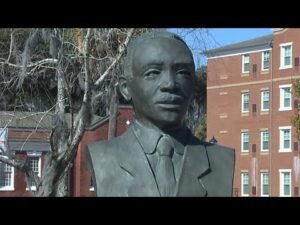
Reconstruction Era
Freedmen’s Bureau
With the end of the Civil War and the abolition of slavery, the United States entered the Reconstruction Era, a period of rebuilding and reform. The Freedmen’s Bureau, established in 1865, aimed to assist newly emancipated African Americans in their transition to freedom. It provided education, employment, and social support, helping thousands of freed individuals rebuild their lives and communities. The Freedmen’s Bureau symbolized the government’s recognition of African Americans’ rights and marked an important step towards equality.
Black Codes
Despite the initial progress during Reconstruction, African Americans faced significant obstacles in the form of Black Codes. These were laws enacted by Southern states that aimed to restrict the rights and freedoms of newly freed individuals. Black Codes enforced racial segregation, limited access to education and employment opportunities, and sought to maintain white supremacy. The existence of these oppressive laws highlighted the persistent struggle for equality during the Reconstruction Era.
Reconstruction Amendments: 13th, 14th, and 15th Amendments
The Reconstruction Era ushered in a series of constitutional amendments that aimed to secure civil rights and equality for African Americans. The 13th Amendment, ratified in 1865, abolished slavery and involuntary servitude. The 14th Amendment, ratified in 1868, granted citizenship and equal protection under the law to all individuals born or naturalized in the United States, including African Americans. Finally, the 15th Amendment, ratified in 1870, granted African American men the right to vote. While these amendments represented significant progress, their implementation faced resistance and would later be challenged.
Segregation and Jim Crow Era
Plessy v. Ferguson
In 1896, the Supreme Court’s decision in Plessy v. Ferguson established the “separate but equal” doctrine, allowing for racial segregation in public facilities. This ruling legitimized racial discrimination and reinforced the systemic oppression of African Americans. The Jim Crow era, named after a fictional black character, introduced legal and social barriers that enforced racial segregation, denying African Americans equal access to public spaces, education, housing, and employment opportunities.
Segregation Laws
Segregation laws, also known as Jim Crow laws, enforced strict racial separation in all aspects of life. These laws dictated separate facilities for whites and African Americans, including schools, public transportation, restrooms, and restaurants. Violation of these laws often resulted in severe consequences, such as imprisonment or physical violence. Segregation laws not only perpetuated racial inequality but also sent a message of inferiority and dehumanization to African Americans.
Race Riots and Lynching
The early 20th century witnessed numerous race riots and incidents of lynching, particularly in the Southern states. These violent acts of racial terrorism were often aimed at intimidating and subjugating African Americans. Lynching became a method used by white supremacists to maintain control and instill fear in the African American community. These dark chapters in American history serve as a reminder of the long-lasting impacts of racial discrimination and the struggle for civil rights.
Civil Rights Movement
Brown v. Board of Education
The landmark Supreme Court case, Brown v. Board of Education, decided in 1954, declared racial segregation in public schools unconstitutional. This ruling overturned the “separate but equal” doctrine established in Plessy v. Ferguson. The Brown decision marked a pivotal moment in the civil rights movement, challenging race-based educational inequalities and setting the stage for further dismantling of segregation laws and policies.
Montgomery Bus Boycott
One of the most influential events in the civil rights movement was the Montgomery Bus Boycott, which began in 1955. The boycott was sparked by Rosa Parks’ refusal to give up her seat on a segregated bus. African Americans in Montgomery, Alabama, organized a year-long boycott, refusing to ride the buses until they were desegregated. This peaceful protest, led by Dr. Martin Luther King Jr., demonstrated the power of collective action and served as a catalyst for future civil rights campaigns.
March on Washington
In 1963, the March on Washington for Jobs and Freedom became a defining moment in the civil rights movement. Over 200,000 people, including African Americans and allies from all backgrounds, gathered in the nation’s capital to demand equality, civil rights legislation, and an end to racial discrimination. This historic event culminated in Dr. Martin Luther King Jr.’s iconic “I Have a Dream” speech, which called for racial harmony and justice. The March on Washington symbolized the strength and determination of the civil rights movement and helped galvanize support for change.
Black Power Movement and Black Nationalism
Black Panthers
The Black Power movement emerged in the 1960s as a response to systemic racism and the slow progress of the civil rights movement. The Black Panther Party, founded in 1966, sought to address racial injustice, police brutality, and socioeconomic disparities through activism and community programs. The party’s efforts to address the social, economic, and political needs of African Americans resonated with many, particularly in urban communities. However, their approach, including armed self-defense, also generated controversy and faced increased government scrutiny.
Nation of Islam
The Nation of Islam, a religious and political organization, gained prominence during the mid-20th century. Led by figures such as Malcolm X, the Nation of Islam advocated for black self-determination, economic empowerment, and the establishment of a separate black nation. While its ideology and strategies differed from mainstream civil rights groups, the Nation of Islam contributed to the wider discourse on black empowerment and inspired many African Americans to embrace their cultural heritage and challenge racial inequality.
Malcolm X
Malcolm X, born Malcolm Little, was a prominent figure in the civil rights movement. From his early involvement with the Nation of Islam to his later advocacy for international human rights, he became a powerful voice for the black community. Malcolm X’s teachings emphasized self-reliance, cultural pride, and self-defense against racial violence. His powerful speeches and writings confronted white supremacy head-on and urged African Americans to stand up for their rights. Malcolm X remains an influential figure in the struggle for racial equality.
Post-Civil Rights Era and Contemporary Issues
Affirmative Action
Following the civil rights movement, affirmative action policies were implemented to address historical racial disparities and promote equal opportunity. Affirmative action seeks to level the playing field by considering race, gender, and other factors in college admissions and employment decisions. While these policies have faced criticism and legal challenges, many argue that they are necessary to counteract ongoing systemic racism and promote diversity and inclusion.
Black Lives Matter
The Black Lives Matter (BLM) movement, founded in 2013, emerged as a response to the continued racial discrimination and police violence faced by African Americans. BLM advocates for racial justice, police reform, and an end to systemic racism. Through protests, social media activism, and community organizing, BLM has brought national attention to the disproportionate impact of violence and systemic oppression on the black community. The movement has sparked important conversations and calls for change.
The Obama Presidency
In 2008, Barack Obama made history by becoming the first African American president of the United States. His election symbolized progress in the fight for racial equality. During his presidency, Obama championed efforts to expand healthcare access, address climate change, promote criminal justice reform, and improve educational opportunities. While his presidency faced challenges and criticisms, it remains a landmark moment for African Americans and a testament to the ongoing struggle for equal representation and opportunity.
Contributions and Achievements
Literature and Art
African Americans have made significant contributions to literature and art, enriching American culture and challenging societal norms. From the works of Maya Angelou, Langston Hughes, and Toni Morrison to the artistry of Jacob Lawrence, Faith Ringgold, and Kara Walker, African American writers and artists have explored themes of race, identity, and social justice. Their creative expression has had a profound impact on shaping American literature and art.
Music and Dance
African American music and dance have had an indelible impact on American and global culture. From spirituals and gospel to jazz, blues, and hip-hop, African American musicians and artists have pioneered genres that continue to resonate with people around the world. Artists such as Louis Armstrong, Ella Fitzgerald, Aretha Franklin, Michael Jackson, and Beyoncé have not only achieved commercial success but also used their platforms to address social issues and inspire change through their art.
Science and Technology
African Americans have made significant contributions to the fields of science and technology, often in the face of limited opportunities and systemic barriers. Trailblazers such as George Washington Carver, the inventor of peanut products, and Mae Jemison, the first African American woman to travel into space, have helped expand our understanding of the universe and improve our daily lives. African American scientists, engineers, and innovators continue to make groundbreaking discoveries and advancements, shaping the future of various disciplines.
History of the African American Race: From the Transatlantic Slave Trade to Modern-Day Achievements
The history of the African American race is a rich and complex tapestry woven through centuries of struggle, resilience, and triumph. From the harrowing experiences of the Middle Passage to the groundbreaking achievements of modern-day leaders, understanding this history is crucial for all Americans. This exploration delves into key periods such as the Transatlantic Slave Trade, Reconstruction, the Civil Rights Movement, and the ongoing fight for equality. By understanding these pivotal moments, we can better appreciate the impact of African Americans on the social and political landscapes of the United States.
The Transatlantic Slave Trade and the Middle Passage
The Transatlantic Slave Trade, which began in the 16th century, forcibly brought millions of Africans to the Americas. The Middle Passage was the harrowing journey enslaved Africans endured across the Atlantic Ocean. Conditions aboard the ships were inhumane, with individuals packed tightly, suffering from disease, malnutrition, and abuse. This period left an indelible mark on African American history, as generations were born into slavery, enduring unimaginable hardships.
Reconstruction and the Fight for Freedom
Following the Civil War, the Reconstruction era (1865-1877) marked a significant period of transformation for African Americans. The abolition of slavery with the 13th Amendment, along with the 14th and 15th Amendments, aimed to grant citizenship and voting rights. Despite these legal advancements, African Americans faced significant resistance and violence from groups like the Ku Klux Klan. Notable figures such as Frederick Douglass and Harriet Tubman emerged as leaders, advocating for equality and justice.
The Civil Rights Movement: A Fight for Equality
The mid-20th century Civil Rights Movement was a pivotal era in African American history. Leaders like Martin Luther King Jr., Rosa Parks, and Malcolm X spearheaded efforts to end segregation and secure voting rights. Landmark events such as the Montgomery Bus Boycott, the March on Washington, and the passage of the Civil Rights Act of 1964 and the Voting Rights Act of 1965 significantly advanced the cause of equality. The movement’s impact is still felt today, as it laid the foundation for ongoing social justice efforts.
Modern-Day Achievements and the Ongoing Fight for Equality
In recent decades, African Americans have made significant strides in various fields, from politics and business to arts and sports. Figures such as Barack Obama, the first African American President of the United States, and Oprah Winfrey, a media mogul, exemplify these achievements. However, the fight for equality continues, with movements like Black Lives Matter highlighting ongoing issues of racial injustice and police brutality.
Understanding African American History is Crucial
Understanding African American history is essential for all Americans as it provides context for current social and political issues. It highlights the contributions and sacrifices of African Americans and underscores the importance of continuing the fight for equality and justice. By acknowledging this history, we can work towards a more inclusive and equitable society.
Incorporating African American History into Education
Educators play a vital role in ensuring that African American history is accurately and comprehensively taught. This can be achieved by incorporating diverse perspectives into the curriculum, using primary sources, and highlighting the achievements and contributions of African Americans throughout history. Programs and initiatives that promote cultural competence and anti-racism education are also crucial.
Becoming Informed Allies
Individuals can become more informed allies by educating themselves on African American history, listening to the experiences of African Americans, and actively participating in social justice initiatives. Supporting policies and organizations that promote equality and justice is also essential. By taking these steps, we can all contribute to a more just and equitable society.
Significant Milestones in African American History
Here is a timeline of significant milestones in African American history:
By understanding and appreciating the rich history of the African American race, we can better recognize the ongoing struggles and achievements that shape our society. This knowledge empowers us to be more informed and active participants in the fight for equality and justice.
FAQs: # Frequently Asked Questions History of the African American Race.
1. What are the origins of the African American race?
The origins of the African American race trace back to the diverse cultures and societies of Africa. Before the transatlantic slave trade, African societies were rich with their own distinct languages, traditions, and social structures. The forced migration of Africans to the Americas began in the early 17th century, bringing together individuals from various ethnic backgrounds under the banner of slavery. This blending of African cultures with the realities of life in the Americas laid the groundwork for the African American identity. Over time, these African roots melded with the influences of European and Native American cultures, creating a unique and evolving cultural heritage.
2. How did the transatlantic slave trade impact African American history?
The transatlantic slave trade had a profound and devastating impact on African American history. Between the 16th and 19th centuries, millions of Africans were forcibly transported across the Atlantic Ocean to work as slaves in the Americas. This brutal trade resulted in the disruption of African societies and the dismantling of families. For African Americans, it marked the beginning of a long struggle for freedom and equality. The legacy of the slave trade includes systemic racism, economic disparity, and cultural loss, all of which have shaped the African American experience and continue to influence societal dynamics today.
3. What were the key events and figures during the Civil Rights Movement?
The Civil Rights Movement was a defining period in African American history, marked by pivotal events and influential figures. The 1954 Supreme Court decision in Brown v. Board of Education declared segregation in public schools unconstitutional, a landmark victory for the movement. Key figures such as Martin Luther King Jr., whose leadership and oratory inspired millions, and Rosa Parks, whose refusal to give up her bus seat sparked the Montgomery Bus Boycott, played crucial roles. The 1963 March on Washington, where Dr. King delivered his iconic “I Have a Dream” speech, was another significant event that galvanized support for civil rights. The passage of the Civil Rights Act of 1964 and the Voting Rights Act of 1965 were legislative triumphs that dismantled legal segregation and expanded voting rights.
4. How did the Great Migration shape African American communities?
The Great Migration, spanning from the early 20th century to the 1970s, was a transformative period for African American communities. During this era, millions of African Americans moved from the rural South to the urban North in search of better economic opportunities and to escape the oppressive Jim Crow laws. This migration led to the growth of vibrant African American neighborhoods in cities like Chicago, Detroit, and New York. It also fostered cultural and political changes, including the Harlem Renaissance, a flourishing of African American art, music, and literature. The migration reshaped the socio-economic landscape of the nation and contributed to the development of a more cohesive African American identity.
5. What role did African Americans play in the abolitionist movement?
African Americans were instrumental in the abolitionist movement, advocating fiercely for the end of slavery. Figures like Frederick Douglass, a former slave turned eloquent orator and writer, used his personal experiences to highlight the injustices of slavery and garner support for abolition. Harriet Tubman, renowned for her role in the Underground Railroad, led many enslaved people to freedom and became a symbol of resistance. Sojourner Truth, with her powerful speeches and advocacy for women’s rights, also made significant contributions. The efforts of African Americans were crucial in rallying support and creating the momentum necessary to challenge and eventually dismantle the institution of slavery.
6. How have African American cultural contributions influenced American society?
African American cultural contributions have profoundly shaped American society in numerous ways. The impact of African American music genres like jazz, blues, and hip-hop is undeniable, influencing not only popular music but also cultural trends worldwide. Literary works by African American authors, such as those by Toni Morrison and Langston Hughes, have enriched American literature with new perspectives and narratives. African American visual artists and performers have brought unique cultural expressions to mainstream audiences, challenging stereotypes and fostering greater appreciation for diversity. These cultural contributions have not only enriched American society but have also played a key role in shaping its cultural identity.
7. What significant milestones have marked the evolution of African American identity?
The evolution of African American identity has been marked by several significant milestones. The abolition of slavery and the subsequent passage of the 13th, 14th, and 15th Amendments were crucial in establishing legal rights for African Americans. The Harlem Renaissance of the 1920s was another milestone, showcasing the flourishing of African American arts and intellectual thought. The Civil Rights Movement of the 1950s and 1960s marked a pivotal period of struggle and achievement in the fight for racial equality. More recently, the election of Barack Obama as the first African American President in 2008 represented a profound shift in the national narrative, highlighting both progress and ongoing challenges in the quest for racial equality.
8. How did segregation and Jim Crow laws affect African American life?
Segregation and Jim Crow laws had a devastating impact on African American life, entrenching racial discrimination and inequality. Enacted in the late 19th and early 20th centuries, these laws mandated the separation of races in public spaces, including schools, transportation, and housing. African Americans were subjected to inferior facilities and services, perpetuating economic and social disparities. The laws also enforced a rigid social hierarchy that reinforced racial prejudice and violence. The effects of these discriminatory practices were long-lasting, contributing to persistent economic and social challenges that African American communities continue to address today.
9. What were the major achievements of African Americans during the Reconstruction era?
The Reconstruction era, following the Civil War, was a time of significant achievement for African Americans despite intense resistance and challenges. The 13th, 14th, and 15th Amendments were monumental legal victories, abolishing slavery, granting citizenship, and securing voting rights. During this period, African Americans made substantial strides in politics, with figures like Hiram Revels and Blanche K. Bruce becoming the first African American U.S. Senators. The establishment of educational institutions, such as Fisk University and Howard University, provided vital opportunities for African Americans to gain education and develop leadership skills. These achievements laid a foundation for future progress and set the stage for subsequent civil rights advancements.
10. How has the historical experience of African Americans shaped contemporary issues?
The historical experiences of African Americans have profoundly influenced contemporary issues, shaping the ongoing struggle for equality and social justice. The legacy of slavery, segregation, and systemic racism continues to affect socio-economic conditions, educational opportunities, and political representation. Historical injustices have contributed to disparities in wealth, health, and access to resources, which are reflected in current debates over criminal justice reform, economic inequality, and educational equity. The resilience and activism of African Americans throughout history also serve as a source of inspiration for contemporary movements advocating for civil rights and social change, emphasizing the enduring quest for a more just and equitable society.
In conclusion, the history of the African American race is one of resilience, resistance, and remarkable contributions to American society. From the horrors of slavery to the ongoing fight for racial justice, African Americans have played a pivotal role in shaping the nation’s history. It is essential to acknowledge and celebrate their contributions, while also recognizing the ongoing struggle for equality and the work that still needs to be done to create a more just and inclusive society.


